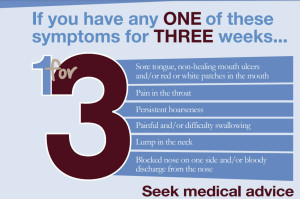This post has been prompted by two seemingly unconnected events this week.
I saw by chance a laryngectomee that I first met more than ten years ago. He was about to have the operation and I spoke to him at the request of my local hospital. I have been supporting patients in this way for more than 20 years and it is one of the most important things I do. A laryngectomy can be a terrifying prospect which a few will decline, but it is a life-saver. Seeing what it is like on the other side, after surgery, can be a source of strength in deciding to proceed and provide reassurance when it is most needed. It is also helpful to family members who may be present at some meetings.
The outcome for my friend was not the best. He has no voice as a valve was not an option, due to the nature of the surgery required, and he cannot use an electrolarynx. Additionally, he has swallowing problems and cannot eat a normal diet. Despite all of this he has no regrets about having the operation. He took out his phone and showed me pictures of his grandchildren who he would not have lived to see without the treatment he was given.
The second event was a request to review the proposed new website of the Royal College of Speech and Language Therapists (RCSLT). One section, covering laryngectomy guidelines for the RCSLT, mentioned enabling meetings between patients and those who have previously been on this journey. I cannot overstate how important I feel this is. For the SLT, working under pressure, setting up such a meeting can take much time and effort. The patient may also have reservations, how hard should the SLT try to convince them of the potential benefits?
For me, the pre-laryngectomy meetings with patients don’t make great demands on my time, the challenge is to respond appropriately to someone you are meeting for the first time. As my friend demonstrates every time we meet, the meeting for him was of massive significance. Since the publication of Improving Outcomes In Head and Neck Cancer in 2004, the value of such peer support meetings has been widely recognised in peer review measures and cancer strategy documents. Recent events such as the Covid pandemic have made implementation difficult but surely this is now in the past?

